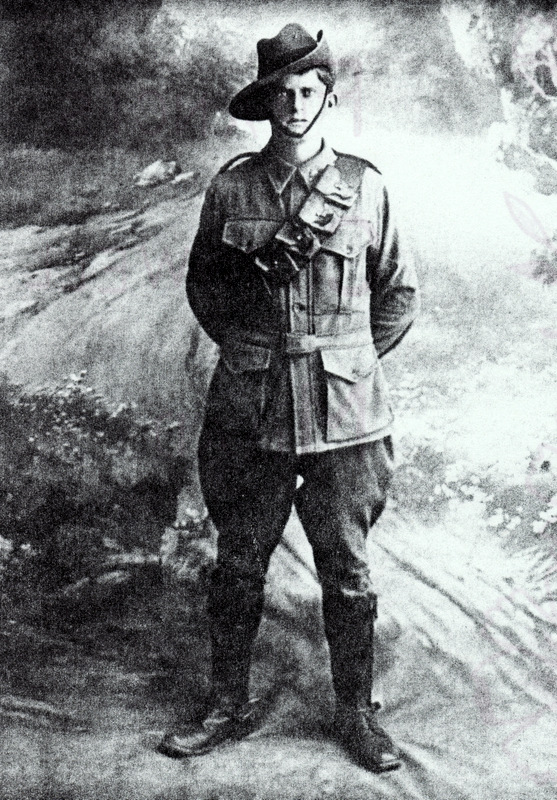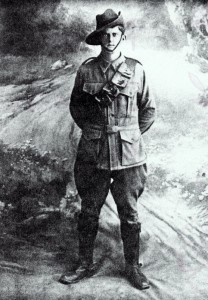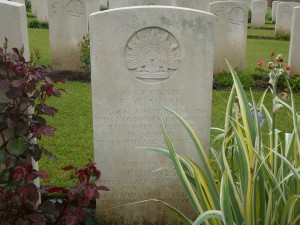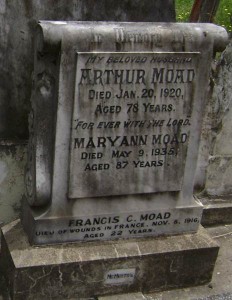Francis Cornwall Moad was born in 1894, the youngest of 15 children born to Arthur Moad and his wife Mary Ann nee Ward who farmed Little Springs at Spring Hill. Arthur was the preacher at the Spring Hill Methodist Church for 45 years; where he was also the superintendent of the Sunday School.
Francis – also known as Frank – worked on the family farm and was well known in the area as a footballer. He was also a member of the Foresters’ Lodge. Frank enlisted in December 1914 and embarked from Sydney in February 1915, a private in the 6th Light Horse Regiment. Private Moad served in Gallipoli and France. Whilst in Gallipoli he was struck with enteric fever, which saw him admitted to Addington Park War Hospital at Croydon in England.
In September 1916 Private Moad proceeded to France to reinforce the 3rd Battalion. The following month he was wounded in action in Belgium, sustaining a gunshot wound to the left forearm. After spending two weeks recovering, he rejoined his unit in France on 29 October, only to be shot in the chest five days later. He was taken to the 15th Field Ambulance, then transferred to 38th Casualty Clearing Station, where he died of his wounds.
In July 1917 Francis’ father received a package containing his son’s personal effects: his disc, letters, photographs, a pipe, a note book, a religious book, 14 coins, two knives, a purse, two wallets and a broken fountain pen.
Francis is commemorated on his parents’ headstone in Orange Cemetery, Methodist old area. He is also commemorated on the Spring Hill Church Roll of Honor, the Spring Hill Public School Honour Roll, the Spring Hill Temperance Hall Honor Roll, the Ancient Order of Foresters Orange Roll of Honor and on the World War I Roll of Honour on the southern face of the Orange Cenotaph.
In 1923 the Anzac Memorial Avenue of trees was planted along Bathurst Road to commemorate fallen WWI soldiers. A tree was planted in honour of “Pte F Moad”; it was donated by the Ancient Order of Foresters. Very few of the trees are still standing today.
Francis’ brother – Raymond Westley Moad – also served in WWI.




